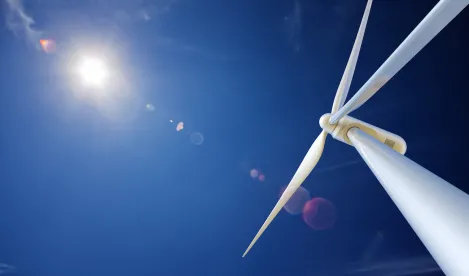On April 29, 2020, Mexico’s independent system operator (“CENACE”) notified generators of its decision to indefinitely suspend all legally mandated pre-operation tests for solar and wind projects in light of the COVID-19 pandemic. Such suspension purportedly seeks to safeguard the national grid against system interruptions clean intermittent energy projects could cause during the pandemic, and essentially bars any such projects from connecting to the grid until further notice. According to industry groups AMDEE and ASOLMEX, CENACE’s actions impact a total of 44 solar and wind projects (28 that are ready for commercial operation and 16 that are under construction), which represent approximately US$6.4 billion in investments.
Less than three weeks later, on Friday, May 15, the Agreement setting forth the Policy of Reliability, Safety, Continuity, and Quality of the National Electric System (“Policy”) was published in the Official Gazette of the Federation by the Ministry of Energy (“SENER”). The Policy cites as its primary objective the establishment of guidelines allowing competent authorities to guarantee the national grid’s electricity supply based on principles of reliability, insisting that clean intermittent energy poses a threat to such security and reliability. Much like CENACE’s suspension, the Policy primarily impacts those solar and wind projects not yet in commercial operation, but it may also impact in-the-fence projects that intend to connect to the national grid.
The Policy effectively unwinds some of the 2013 Energy Reforms, including the state-owned Federal Electricity Commission’s (“CFE”) control over the electricity sector and participation of the private enterprises in the electricity sector. It also erodes such Reform’s free market economy and transparency precepts, as well as the protections afforded the Mexican population in the form of access to cheap energy and protection of the environment.
Specifically, CFE’s strategic power and influence over SENER is strengthened by the Policy’s requirement that CFE recommend “strategic projects that further the public service” to SENER. CFE’s new role may result in the prioritization of conventional sources of energy, including Petróleos Mexicanos (PEMEX) products, to the detriment of clean intermittent energy. In this same regard, while the 2013 Energy Reforms delegated certain of CFE’s obligations to CENACE, the Policy appears to subordinate CENACE and the Energy Regulatory Commission (“CRE”) to CFE.
Additionally, the Policy, among other things, regulates the issuance of generation permits and interconnection agreements, and grants the CRE and CENACE broad authority to deny permits and reject interconnection study requests made by producers of clean intermittent energy based on security and reliability concerns. Such broad authority erodes the transparency of the permitting process rendering inapplicable precepts of market economy and free access allowing the dispatch of the cheapest energy first as promoted by the 2013 Energy Reform. As a result, clean energy projects are subjected to opaque and unverifiable security and reliability standards as determined by SENER, CFE, CENACE, and/or CRE.
Another element of the Policy is the reference throughout to “interconnection improvements”. In particular, all permits and interconnection agreements, either newly issued or in the renewal process, must include an early termination provision in the event the applicant/grantee fails to undertake certain interconnection work or commence the activities set forth in the permit, including achieving commercial operation, in accordance with a specific schedule. The parameters of such interconnection improvements are not specified and could result in projects being required to undertake additional investments in the form of interconnection improvements that they had not otherwise budgeted.
While this Policy is only the latest in a series of moves by the Lopez Obrador administration that has resulted in private sector uproar, it is the move that most overtly undermines legal and regulatory certainty. On its face, the Policy unwinds various aspects of the 2013 Energy Reforms, in violation of its requirements under the United States-Mexico-Canada Agreement, which, according to the U.S. Trade Representative, “locks in for U.S. investors, services suppliers, and other companies the benefits of Mexico’s historic 2013 Energy Reforms”, and contravenes Mexican law relating to regulatory changes (changes of this nature are subject to an analysis of regulatory impact and public comment period led by the National Regulatory Improvement Commission, the head of which resigned by tweet hours before the Policy was published).
As of the date of this post, a Mexican court enjoined CENACE’s suspension order and numerous trade and business associations, as well as diplomats from Canada and the European Union, have voiced their objections to the Policy. However, given the track record of the Lopez Obrador administration, the Policy will likely also be challenged in court.




 />i
/>i

